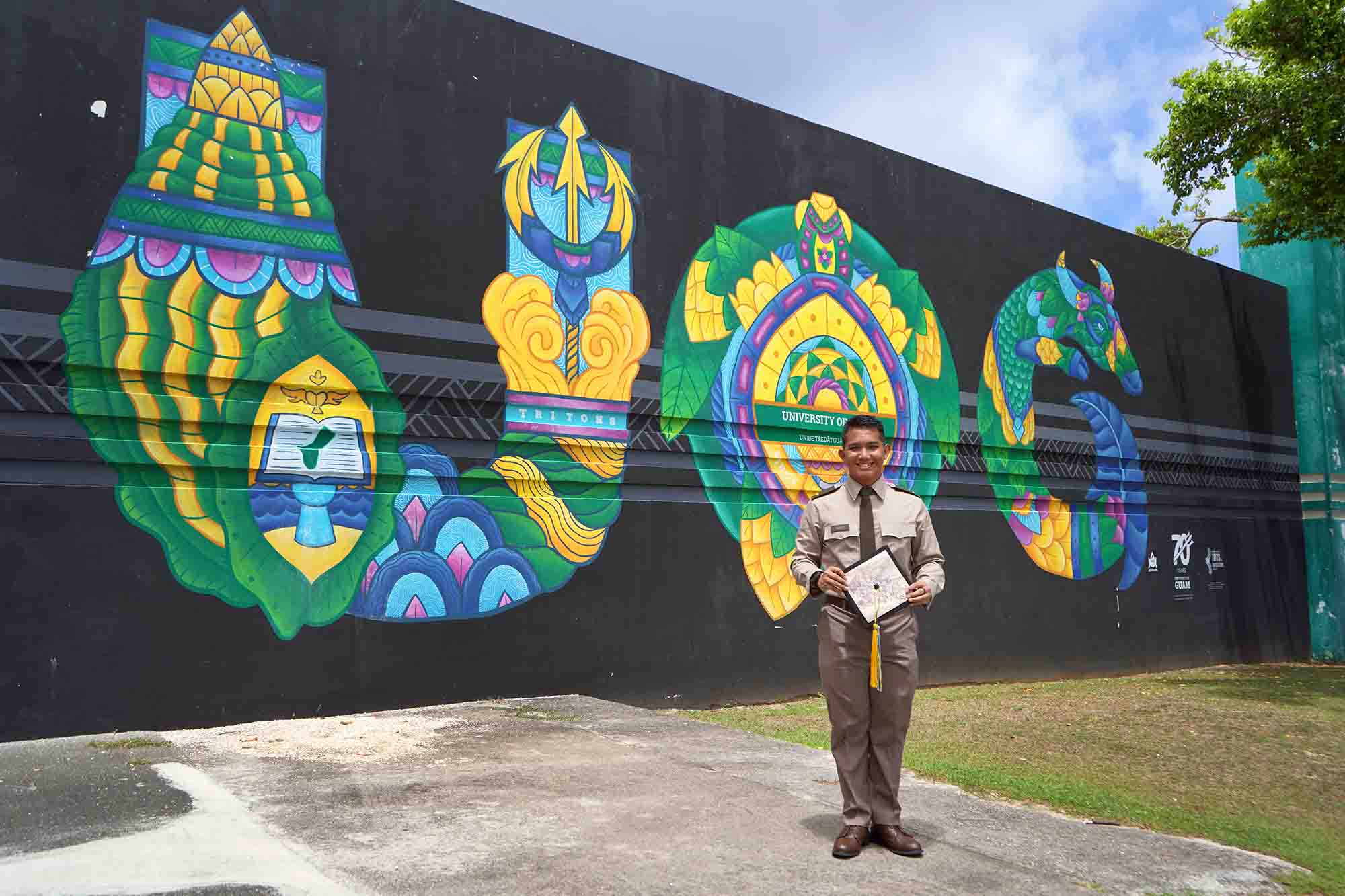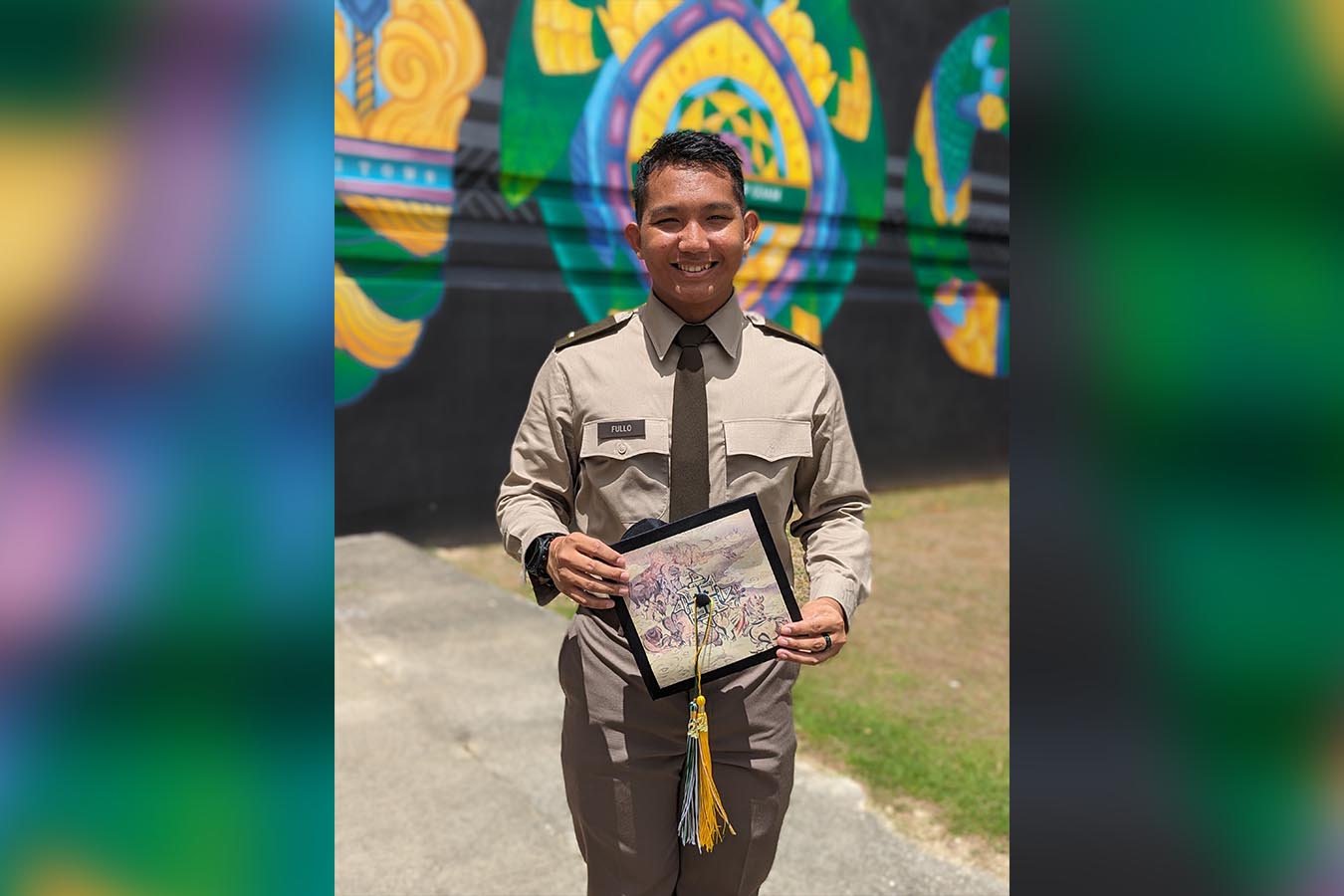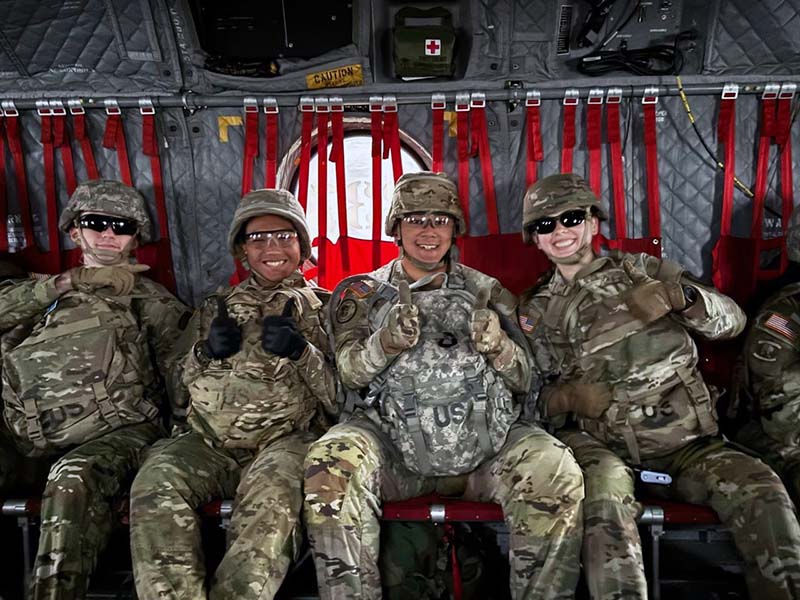Valedictorian Lidio Fullo wanted to see a world with better leadership, so he started with himself
Valedictorian Lidio Fullo wanted to see a world with better leadership, so he started with himself
Valedictorian Lidio Fullo wanted to see a world with better leadership, so he started with himself
6/11/2024
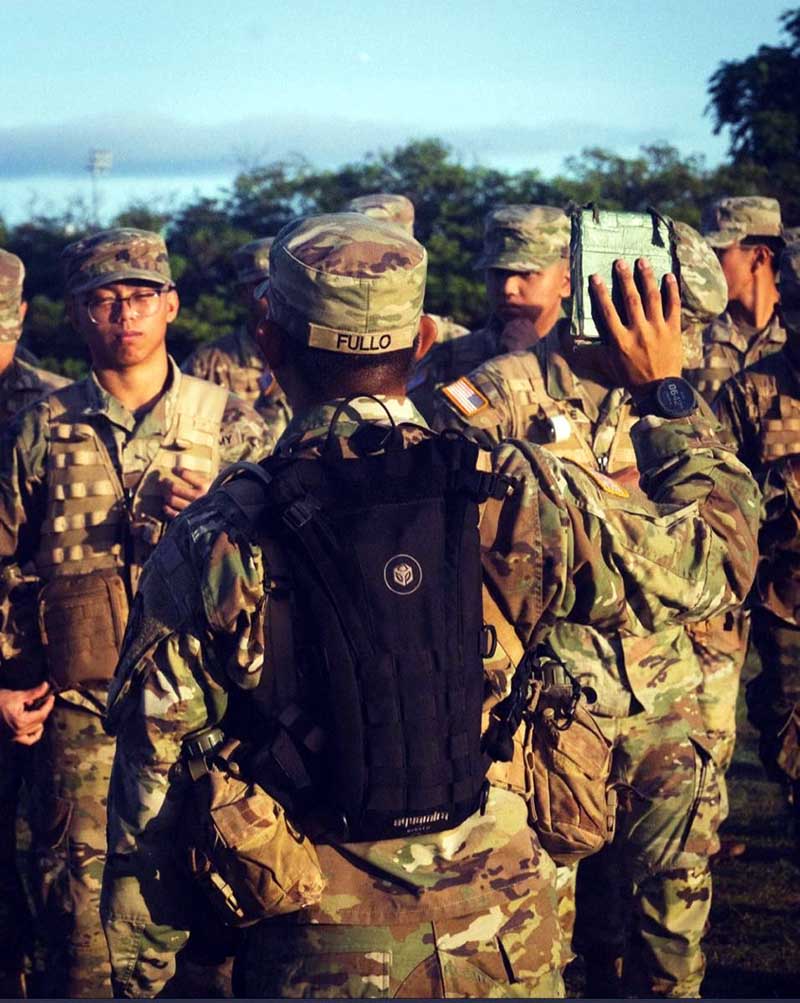
When Lidio Fullo was a child, one of his favorite things to do was beat video games. He would play a game, adjust his tactics, and play again until he mastered it.
“I’ve always valued myself as a problem solver,” he said, thinking back.
As he grew older, he noticed that battles and wars — both literally and figuratively — weren’t just inside of video games. And from what he could tell, the disputes in the world were usually between leaders.
As he pondered a question that his dad, a high school principal in Guam, always posed — “What is the world’s greatest problem, and how can I use my abilities to help solve it?” — Fullo felt the world’s greatest problem, more than hunger, war, or pollution, was poor leadership.
“If the problem in this world and its future is poor leadership, then I feel a sense of duty to become a leader of leaders,” he said.
‘I need to hold myself accountable first’
Fullo started early in this pursuit. He admits he lacked motivation for schoolwork prior to high school until someone pointed out that he wouldn’t be able to rely on his parents forever. He knew he needed to take responsibility for his future and for contributing to a better world — and it started with himself.
“People follow people who have led themselves well,” he said, “so I felt that if I wanted to be a leader — if I’m serious about this — I need to hold myself accountable first.”
While attending Tiyan High School, Fullo was drawn to the Air Force JROTC program, which places leadership development at the top of its curriculum. He later continued onto UOG’s ROTC Program, becoming the first in his family to pursue a career in the military.
Being in ROTC is demanding, he said — “You need to be more responsible than the average student.” It requires completing 29 military science credit hours on top of a student’s major course requirements, early-morning physical fitness training — which could be anything from a one-mile sprint to a 12-mile ruck march — and weekly tactical training labs and extracurricular team-building and leadership development exercises.
Fullo saw every challenge as an opportunity to practice setting an example. He dedicated himself to showing up. He attended every class, every event — and not just on time, but early. “Leadership doesn’t start when you have the position, or when 7 o’clock hits,” he said. “It’s 24 hours, every single day, someone’s watching.”
Setting sights high and arriving on top
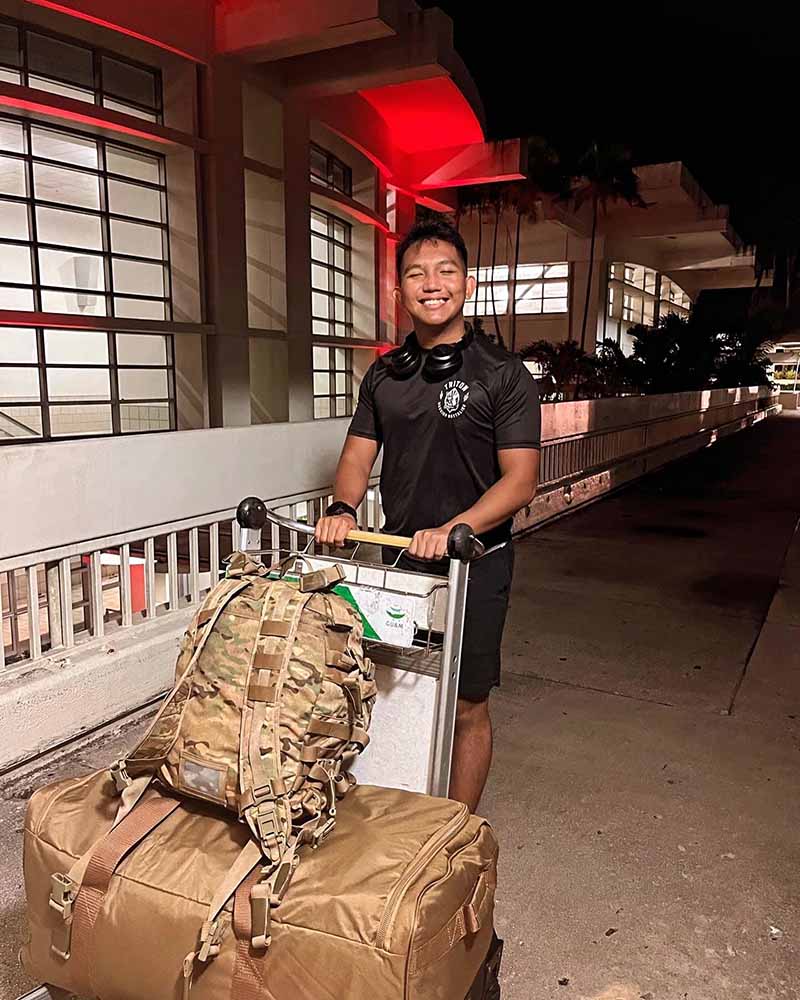 This practice of self-accountability led him to the top of his class more than once.
Having taken honors courses in high school, he achieved a higher than usual GPA of
4.4. This earned him a Merit Scholarship in his graduating class — a full-ride government
of Guam scholarship with a monthly stipend to attend UOG.
This practice of self-accountability led him to the top of his class more than once.
Having taken honors courses in high school, he achieved a higher than usual GPA of
4.4. This earned him a Merit Scholarship in his graduating class — a full-ride government
of Guam scholarship with a monthly stipend to attend UOG.
At UOG, he excelled in the ROTC program, becoming a Distinguished Military Graduate – a designation given to the top 20% of Army ROTC graduates in the nation based on scholarship, character, aptitude, and demonstrated leadership. But he also excelled in his coursework, becoming the co-valedictorian for the Fañomnåkan Class of 2024 along with philosophy major Hunter Sidell. Fullo is the first-ever ROTC cadet to become valedictorian at UOG.
While his leadership aspirations may have been a good fit for a public administration or business administration degree, he chose to major in psychology so that he could focus first on understanding people and how to best understand and communicate with them.
“Psychology is really about actively listening to people,” he said. “Psychology will ask how you feel. I feel like that’s the primary skill needed for being a leader, just active listening. It’s a useful skill that, surprisingly, the majority of people don’t know how to do.”
He particularly enjoyed his psychology practicum, where the class got to practice listening and communication — skills he knows will serve him well in his future military career.
Much to achieve
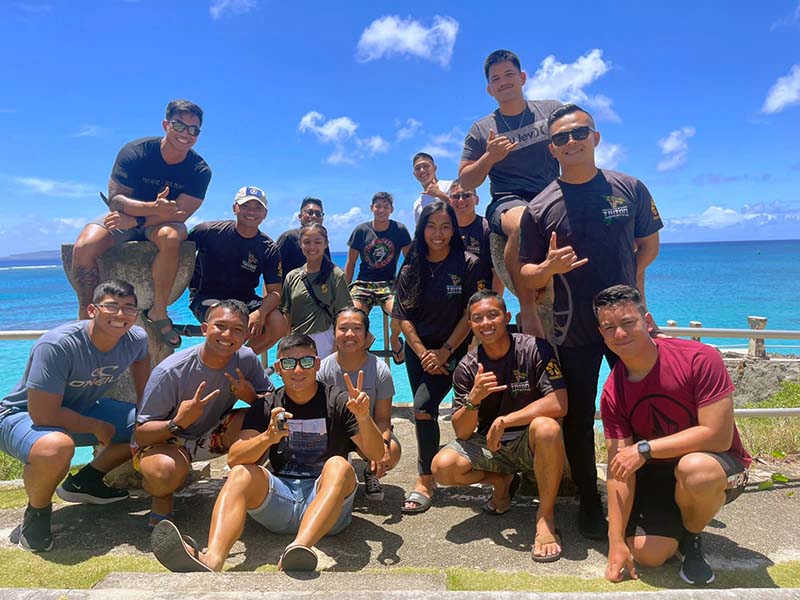 Fullo knows that becoming a leader will take time and experience, but he’s excited
to take the first step and start working with a team of soldiers.
Fullo knows that becoming a leader will take time and experience, but he’s excited
to take the first step and start working with a team of soldiers.
Upon graduating in May, he commissioned into the U.S. Army as an active-duty officer in the Signal Corps, which oversees communications systems. He will go to Fort Knox, Ky., this summer to become an assistant S3 and then to Fort Gordon, Ga., to complete the four-month Basic Officer Leadership Course. His first station will be Camp Casey in South Korea as a platoon leader, where he will manage a team and plan and coordinate resources.
“They say that the higher you go as an officer, the more you step away from actually leading soldiers," he said, "so I’m just going to enjoy this time of actually being with my platoon — actually working with them and just being there with them in the field.”
He’s also looking forward to starting life and a family with his wife, Elizabeth Fullo, who he met in class at UOG. They graduated together this May, both with degrees in psychology.
Down the road, Fullo fully expects to come back to Guam. It would be possible for him to come back and work as a JROTC instructor or, hopefully, he said, as the professor of military science for the UOG ROTC Program. It would be a chance for him to not only continue solving what he sees as the world’s greatest problem but to ask the next generation the same question.

